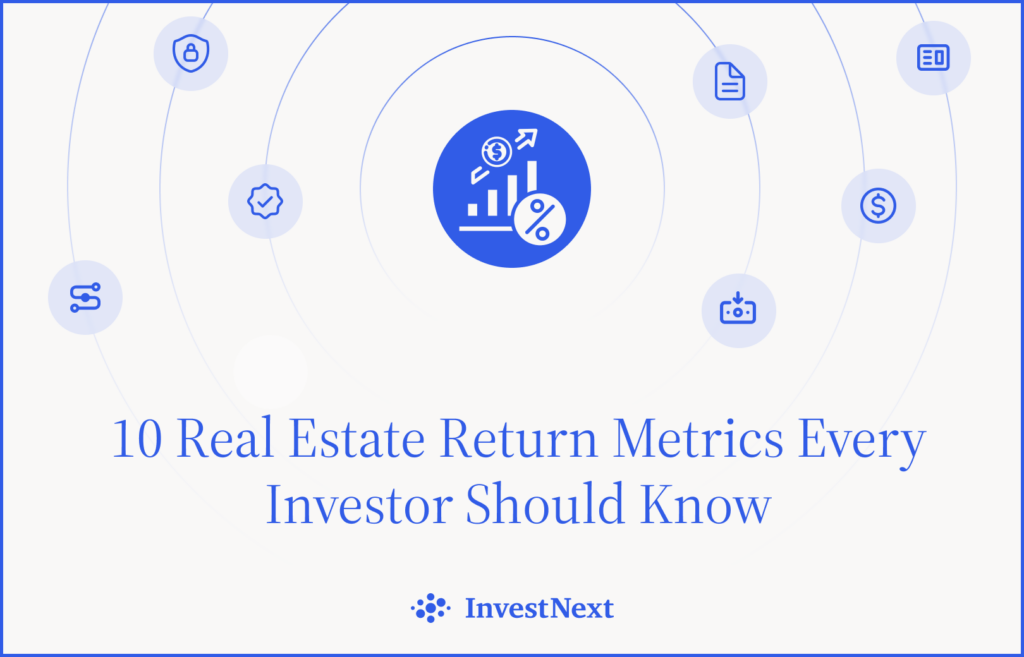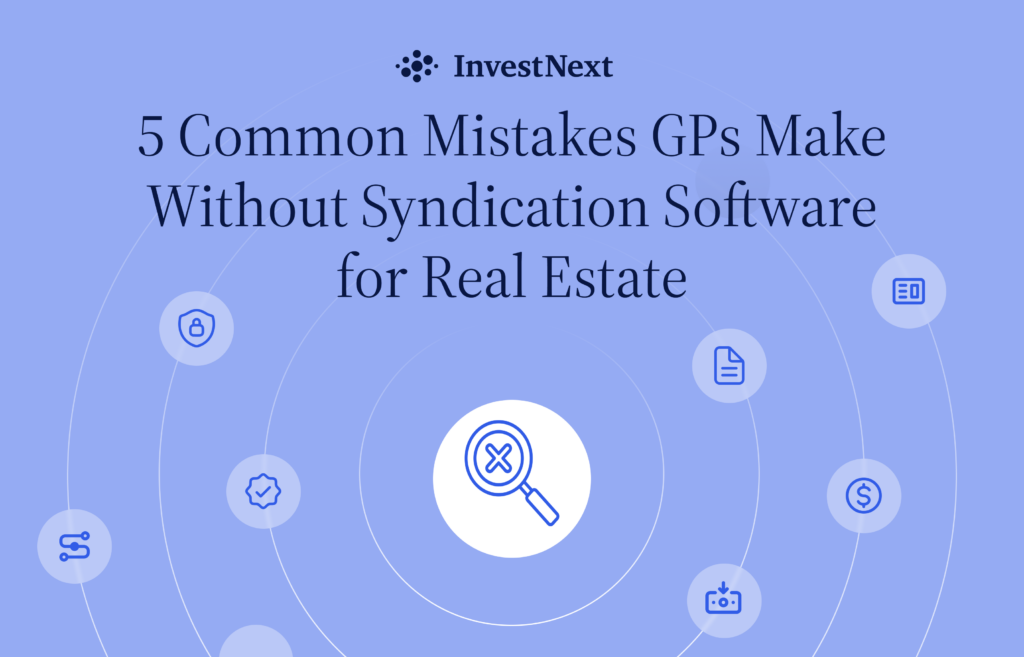Key Takeaways
• Property management handles daily operations like maintenance and tenant relations, ideal for small portfolios and hands-on investors seeking operational efficiency.
• Asset management focuses on strategic portfolio growth with 3-10+ year outlooks, maximizing ROI through acquisitions, dispositions, and financial optimization.
• Combine both approaches as your portfolio scales – property managers handle operations while asset managers drive strategic decisions for comprehensive growth.
• Technology integration bridges both management types, enabling real-time data sharing and transforming reactive management into proactive investment strategy.
• Your investor profile determines the right approach – passive investors with multiple properties benefit from asset management, while active investors with fewer properties may prefer property management focus.
Asset management and property management serve different purposes for real estate investors, yet choosing between them affects your portfolio’s long-term performance. Real estate professionals face this decision frequently as their investments grow beyond single properties. Asset management aims to generate maximum returns through strategic portfolio oversight, while property management focuses on operational efficiency and day-to-day tasks. Managing rental properties presents unique challenges, making the right management approach essential for sustained success.
These two disciplines operate at different levels within your investment strategy. Property managers handle everyday operations including maintenance scheduling, rent collection, and tenant relations. Asset managers concentrate on financial strategy – they manage tax obligations, negotiate with lenders, and oversee acquisitions and dispositions to maximize long-term profitability. Asset management encompasses portfolio oversight, focusing specifically on investment value optimization and return enhancement for property owners.
Portfolio growth creates increased complexity in management decisions. Properties across different markets require distinct approaches, and diversification brings operational challenges that demand specialized expertise. This guide addresses the fundamental differences between asset and property management, helping you identify which approach – or strategic combination – aligns with your specific investment objectives and growth trajectory.
Your management choice impacts both immediate cash flow and long-term wealth building potential. Understanding these approaches enables more informed decisions about resource allocation, operational efficiency, and strategic growth planning across your real estate investments.
Investor Goals and Management Needs
Real estate investment objectives determine your management approach more than any other factor. Your investor profile shapes management requirements, making careful evaluation essential before choosing between asset and property management structures.
What type of investor are you?
Portfolio size and investment approach define management needs across different investor categories. Your management requirements change substantially based on your investor profile:
Long-term property investors focus on capital growth over extended periods, typically 10+ years, prioritizing appreciation over rental yield. These investors benefit from asset management strategies that optimize portfolio value through strategic acquisitions and market timing decisions.
Income-focused investors prioritize rental income and high yields, often exploring HMOs or underdeveloped areas. Property management becomes crucial for maximizing occupancy rates and maintaining consistent cash flow streams.
Hands-on investors enjoy participating in all aspects of property investment, from finding properties to overseeing renovations. This investor type typically prefers property management control while selectively using asset management for strategic decisions.
Passive investors prefer minimal personal involvement while generating steady returns. Asset management serves these investors well by handling strategic oversight while property managers manage operational tasks.
Multiple properties across different markets create complexity that requires asset management expertise. Owners with just one or a few communities may not need asset management services, making property management sufficient for their operational needs.
Operational efficiency vs strategic growth
Two distinct philosophies drive real estate investment management decisions. Which approach matches your investment priorities?
Operational efficiency streamlines processes to improve your bottom line by speeding up tasks, reducing waste, and optimizing resource allocation. Property managers excel at daily operations like maintenance coordination, tenant relations, and routine tasks that enhance individual property performance.
Strategic growth focuses on portfolio-level decisions that maximize long-term returns. Asset managers examine investments holistically, making acquisition, disposition, and capital allocation decisions across entire portfolios. Investment management software users report that 100% of respondents agreed their businesses scaled more effectively with less overhead cost.
Aligning management with investment goals
Successful real estate investment requires matching management approaches with specific objectives. Your focus determines the optimal structure:
- Short-term operational success – Goals centered on daily property management improvements make property management the logical focus
- Long-term strategic vision – Maximizing ROI and portfolio value requires asset management expertise
Asset managers tailor strategies to meet specific owner objectives, whether focused on short-term cash flow or long-term capital appreciation. This alignment ensures properties meet your unique investment priorities while maintaining operational efficiency.
Asset managers make key financial decisions related to property ownership, whereas property managers typically work within established budgets or fixed monthly fees. Understanding this distinction helps determine which management structure supports your specific investment approach and financial objectives.
Scope of Work: Asset vs Property Management
Operational scope and strategic priorities separate asset management from property management at their core. Your investment portfolio’s complexity and growth objectives determine which approach serves your needs most effectively.
Portfolio-level vs property-level focus
Asset managers operate with a macro perspective, concentrating on financial performance optimization and long-term value creation. Their analysis spans entire portfolios using 3-10+ year outlooks, deciding market entry and exit timing alongside acquisition and disposition strategies. Similar to corporate CEOs, asset managers oversee your investment’s big picture.
Property managers work differently, focusing on property-level services that enhance individual asset performance over 1-5 years. Daily operations consume their attention – tenant issues, rent collection, and building maintenance form their primary responsibilities.
This tactical approach maintains smooth operations through consistent maintenance, tenant satisfaction initiatives, and operational efficiency improvements.
Risk management strategies
Detailed risk assessment forms the foundation of effective asset management. Asset managers evaluate multiple risk categories simultaneously:
● Market risks (economic shifts, interest rate changes)
● Property-specific risks (physical conditions, occupancy fluctuations)
● Financial vulnerabilities (cash flow, debt service)
● Regulatory compliance issues
Each risk factor receives measurement for likelihood and potential financial impact, creating targeted defensive strategies that protect your investments.
Portfolio diversification across regions and property types builds resilience against economic downturns and sector-specific challenges.
Property management addresses risks at individual property levels, concentrating on immediate operational concerns including inspections, hazard identification, and occupant safety assurance.
Legal and compliance responsibilities
Asset managers create legal documents like lease agreements and establish rental rates without direct tenant interaction.
Fiduciary responsibility toward clients drives their focus on maximum returns through sound financial strategies and investment decisions.
Property managers ensure adherence to federal, state, and local regulations, particularly landlord-tenant laws and property management requirements. Their compliance responsibilities include:
● Tenant screening procedures
● Fair housing practices
● Lease enforcement protocols
● Property safety standards
Many investors use both management approaches strategically – asset managers drive portfolio growth while property managers ensure operational excellence – especially as real estate holdings expand beyond single properties.
Financial Strategy and Decision-Making
Financial management approaches create distinct pathways for real estate investment success. Asset management and property management employ different financial strategies, each optimized for specific investment objectives and portfolio requirements.
Asset management commercial real estate focus
Asset managers operate across diverse investment vehicles including stocks, bonds, and real estate portfolios. Commercial real estate asset management requires sophisticated financial oversight that directly impacts profitability margins. Due diligence processes during acquisition phases, commercial financing arrangements, and lender negotiations form the foundation of their responsibilities.
Marketing strategy development, property valuation coordination with appraisers, and holding period optimization become critical components for maximizing returns. Individual investors benefit from asset managers who function similarly to financial advisors, providing guidance on acquisition and disposition decisions based on specific investment objectives.
Asset management processes encompass acquisition support, business planning, budget preparation, lease and capital expense approval, and financial analysis – all designed to enhance financial performance throughout property lifecycles. This holistic approach ensures properties meet both immediate cash flow requirements and long-term appreciation targets.
Budget control and financial reporting
Budget management serves as the foundation for successful real estate financial oversight. Structured budgets enable cash flow monitoring, efficient resource allocation, contingency planning, and realistic long-term financial goal setting.
Variance analysis allows asset managers to compare actual expenses against budgeted projections, identifying inefficiencies and cost overruns before they impact profitability. Financial reporting structures include income statements, balance sheets, and cash flow statements that provide detailed property performance tracking.
Critical financial metrics include:
- Net Operating Income (NOI) for profitability assessment
- Capitalization rates for market value determination
- Various valuation methods for return potential analysis
These metrics enable data-driven decisions about property performance improvement strategies. Financial analysis becomes the cornerstone for identifying optimization opportunities across individual properties and entire portfolios.
Return on investment: Long-term vs short-term
Investment horizons substantially influence management approach selection. Asset management typically targets long-term wealth accumulation, aiming for returns that outpace inflation rates. Market volatility creates higher risk profiles, yet capital appreciation strategies focus on sustained growth over extended periods.
Short-term strategies generate higher immediate returns but demand active management oversight. Short-term rentals collected over $62 billion in revenue during 2022, representing a 25.1% year-over-year increase. Peak holiday periods can produce substantial short-term rental income, offsetting potential vacancy challenges.
Long-term approaches provide steadier income streams, reduced vacancy rates, and fewer maintenance complications. Investment structure considerations include leverage opportunities – many rental property acquisitions utilize 15% down payments, enabling significant equity growth potential over time.
Your investment objectives should determine management approach selection, aligning financial strategy with risk tolerance levels and desired return profiles.
Management Structure Selection
Investment scale and objectives determine your optimal management approach. The right structure directly impacts returns and accelerates your wealth-building potential across real estate investments.
Small investor considerations
Single property owners and small portfolio investors often find property management provides adequate oversight without additional complexity. New investors benefit from mastering operational fundamentals – tenant relations, maintenance coordination, and cash flow management – before expanding into strategic portfolio oversight.
Small investors encounter specific decision-making challenges:
• Resource constraints limit the ability to employ multiple management types
• Learning curve factors make property management a practical starting point
• Growth trajectory planning determines transition timing to expanded oversight
Property management suits hands-on investors who participate actively in property-related decisions and operational activities.
Portfolio expansion beyond 3-5 properties typically signals the need for asset management consideration.
Dual management approach benefits
Portfolio growth creates opportunities for employing both management types strategically. Investors pursuing operational efficiency alongside financial growth often need property managers handling daily tasks while asset managers focus on strategic decisions.
This dual structure proves valuable when:
- Managing diverse property types across multiple markets
- Balancing immediate cash flow with long-term appreciation objectives
- Scaling operations while maintaining service quality standards
Effective coordination between asset managers and property managers requires clear communication and aligned objectives. Well-executed partnerships generate consistent rental income while driving overall investment value.
Contract considerations
Asset management agreements outline portfolio-level responsibilities, financial strategies, and long-term planning frameworks. Property management contracts address operational duties, maintenance protocols, and tenant relation procedures.
Review these contract elements carefully:
• Scope of services and performance metrics
• Fee structures and payment terms
• Termination clauses and transition procedures
What management challenges does your current portfolio present?
Collaboration and Technology Integration
Effective partnerships between asset and property managers require integrated technology solutions that streamline communication and performance tracking. Real estate investment potential reaches its peak when these management roles operate cohesively with robust technological support. Digital adoption has become essential as the industry faces increasing operational complexity and data management demands.
How asset and property managers work together
Asset and property management partnerships demand structured coordination across multiple operational levels. The relationship continues to evolve as both roles adapt to new market conditions and technological capabilities.
Successful collaboration requires shared platforms that provide real-time visibility into goals, actions, and performance metrics. Asset management emphasizes independent decision-making and strategic financial oversight, while property management focuses on operational execution and tenant satisfaction.
Communication barriers frequently limit partnership effectiveness. Organizations report that asset managers and property managers often rely on fragmented communication methods, lacking centralized asset management systems or sustainability planning tools.
High-performing asset managers possess four essential capabilities: financial expertise, leadership skills, decisive action under uncertainty, and superior communication abilities.
Technology tools for real estate management
Property management software creates unified systems that connect accounting, operations, and support services across residential and commercial portfolios.
These platforms enable landlords, investors, leasing teams, and maintenance staff to coordinate project execution while providing tenants with online payment processing, lease management, and service request capabilities.
Technology integration across real estate operations unlocks previously inaccessible value streams. Technology consultants help identify optimal software investments and implementation strategies that reduce operational risks, minimize downtime, and control costs effectively.
Property owners accelerate investments in advanced infrastructure including telecommunications systems, IoT sensors, automated controls, and remote monitoring capabilities as tenant demand for tech-enabled spaces increases.
Data sharing and performance tracking
Data strategy success requires close collaboration between operations teams and IT departments. Organizations with strong data management capabilities outperform those that focus solely on analytics without proper data foundation.
Research shows 53% of organizations have outsourced data management functions or actively consider outsourcing to specialized providers.
Real-time monitoring of energy consumption, equipment performance, and maintenance schedules transforms asset management from reactive problem-solving to predictive strategy implementation, enabling decisions that enhance tenant satisfaction and property value. Establishing dedicated data management teams represents the optimal first step for organizations developing robust data strategies.
Data ownership remains with your organization regardless of outsourcing arrangements—businesses maintain responsibility for data quality and accuracy even when working with external vendors.
Asset Management vs Property Management: Key Differences
Real estate professionals need clear comparisons to make informed management decisions. This breakdown highlights the fundamental distinctions between asset and property management approaches, helping you identify which strategy aligns with your investment objectives and portfolio requirements.
| Aspect | Asset Management | Property Management |
| Strategic Focus | Portfolio-level decisions, investment strategy, and wealth accumulation | Day-to-day operations and property-level services |
| Time Horizon | 3-10+ years outlook | 1-5 years operational focus |
| Primary Responsibilities | • Financial management and ROI optimization • Portfolio acquisition/disposition •Lender negotiations • Tax and legal oversight • Strategic growth planning | • Maintenance coordination • Rent collection • Tenant relations • Staff management • Property upkeep |
| Risk Management | • Market risks assessment • Economic trend analysis • Portfolio diversification • Financial vulnerability evaluation | • Property-specific risks • Safety inspections • Tenant screening • Operational hazards |
| Financial Oversight | • Portfolio-wide financial strategy • Investment returns optimization • Capital allocation decisions • Long-term value maximization | • Operating budget management • Rent collection • Maintenance expenses• Short-term cash flow |
| Ideal For | • Large portfolio investors • Multiple property owners • Long-term wealth builders • Passive investors | • Single property owners • Hands-on investors • New real estate investors • Operational-focused owners |
Understanding these distinctions enables more strategic decisions about resource allocation and management structure.
Many successful investors use both approaches simultaneously – asset management for portfolio strategy and property management for operational efficiency.
Conclusion
Management approaches function as complementary tools rather than competing alternatives.
Property management provides operational excellence, while asset management drives strategic growth.
The most successful investors recognize when to employ each approach based on their evolving needs and portfolio complexity.
Real estate investment requires both operational efficiency and strategic vision.
Asset management often becomes the logical progression as investors build wealth and scale their operations across multiple properties and markets.
Book a demo with InvestNext to explore how our platform streamlines portfolio-wide investment strategies for growing real estate firms.
FAQs
What is the main difference between asset management and property management in real estate? Asset management focuses on portfolio-level strategies and long-term financial performance, while property management handles day-to-day operations of individual properties. Asset managers work on maximizing overall investment returns, while property managers ensure smooth daily operations.
When should an investor consider using asset management services? Investors should consider asset management services when they have multiple properties or a diverse portfolio. It’s particularly beneficial for those seeking long-term wealth accumulation, strategic growth, and optimization of returns across their entire real estate investment portfolio.
Can small investors benefit from property management services? Yes, small investors, especially those with single properties or small portfolios, can benefit greatly from property management services. These services handle daily operations, tenant relations, and maintenance, which is ideal for hands-on investors or those new to real estate investing.
How do asset managers and property managers collaborate? Asset managers and property managers collaborate by sharing data and aligning their strategies. Asset managers focus on long-term financial goals and portfolio-wide decisions, while property managers implement these strategies at the property level, handling day-to-day operations and providing valuable on-the-ground insights.
What role does technology play in real estate management? Technology plays a crucial role in both asset and property management by enabling real-time data sharing, performance tracking, and streamlined operations. It helps in unifying accounting, operations, and ancillary services, allowing for more efficient decision-making and predictive management strategies.




